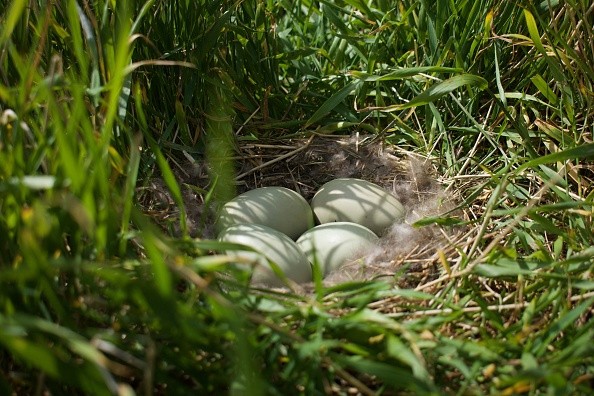The scent of spring is in the air. Birds are chirping and constructing their nests. It happens every year on the same day. However, according to new research published in the Journal of Animal Ecology, several bird species are nesting and producing eggs nearly a month sooner than they did a century ago.
Scientists were able to estimate that nearly a third of the bird species breeding in Chicago have shifted their egg-laying forward by an average of 25 days by comparing current data with century-old eggs kept in museum collections.
And, as far as the experts can determine, climate change is to blame for this shift.
Birds' early laying of eggs

The aroma of spring pervades the air. Birds are singing and putting up their nests. Every year on the same day, it occurs.
Several bird species, however, are nesting and laying eggs roughly a month earlier than they did a century ago, as per a new study published in the Journal of Animal Ecology, as per Reuters.
By comparing current data with century-old eggs housed in museum collections, scientists were able to calculate that roughly a third of the bird species mating in Chicago have pushed their egg-laying forward by an average of 25 days.
Climate change, as far as researchers can tell, is to be responsible for this shift
So far, scientists haven't discovered any distinct characteristics shared by these species, like size or migratory status, that may explain why they're shifting their timetables.
However, "the bulk of the birds we looked at feed insects, and insects' seasonal behavior is likewise impacted by temperature," according to lead author John Bates, curator of the bird section at Chicago's Field Museum.
They studied the eggs by collecting them through the years
"Egg collecting is such a fantastic tool for everyone to learn from bird ecology across time," says John Bates, principal author of the research and curator of birds at the Field Museum.
He likes how this work mixes earlier and current information to look at these changes across around 120 years and help answer really important issues about how climate change affects birds, as per ScienceDaily."
Bates became interested in investigating the museum's egg collections after editing an egg-related book. "Once He got to know their egg collection, he realized how precious the data in that collection are, and how such data aren't mirrored in current collections," he adds.
The egg collection itself is housed in a tiny room jammed with floor-to-ceiling cabinets housing multiple eggs, most of which were acquired over a century ago.
The scientists then obtained two large sets of nesting data: one from around 1880 to 1920, and the other from roughly 1990 to 2015. "There's a gap in the center, which is where Mason Fidino comes in," Bates explains.
Fidino, a statistical ecologist at Chicago's Lincoln Park Zoo and co-author of the paper, developed data-analysis algorithms that enabled them to bridge the gap in the mid-twentieth century, as well as the sampling disparities among early egg collectors and Whelan and Strausberger's research.
The eggs themselves (or rather, merely their clean, dry shells, with the contents blasted out a century ago) are housed in little boxes and surrounded with labels, frequently written, stating what sort of bird they belonged to, where they came from, and when they were gathered, down to the day.
The quantity of CO2 in the atmosphere throughout time easily maps onto greater temperature patterns, and the scientists observed that it also correlates with variations in egg-laying dates.
Because the global temperature change has not been linear over this roughly 150-year period, species may not have moved their lay date non-linearly as well.
Fidino adds that they had included linear and non-linear trends inside their model. "We discovered that the simulated data was highly comparable to the observed data, indicating that our model performed well."
© 2025 NatureWorldNews.com All rights reserved. Do not reproduce without permission.





